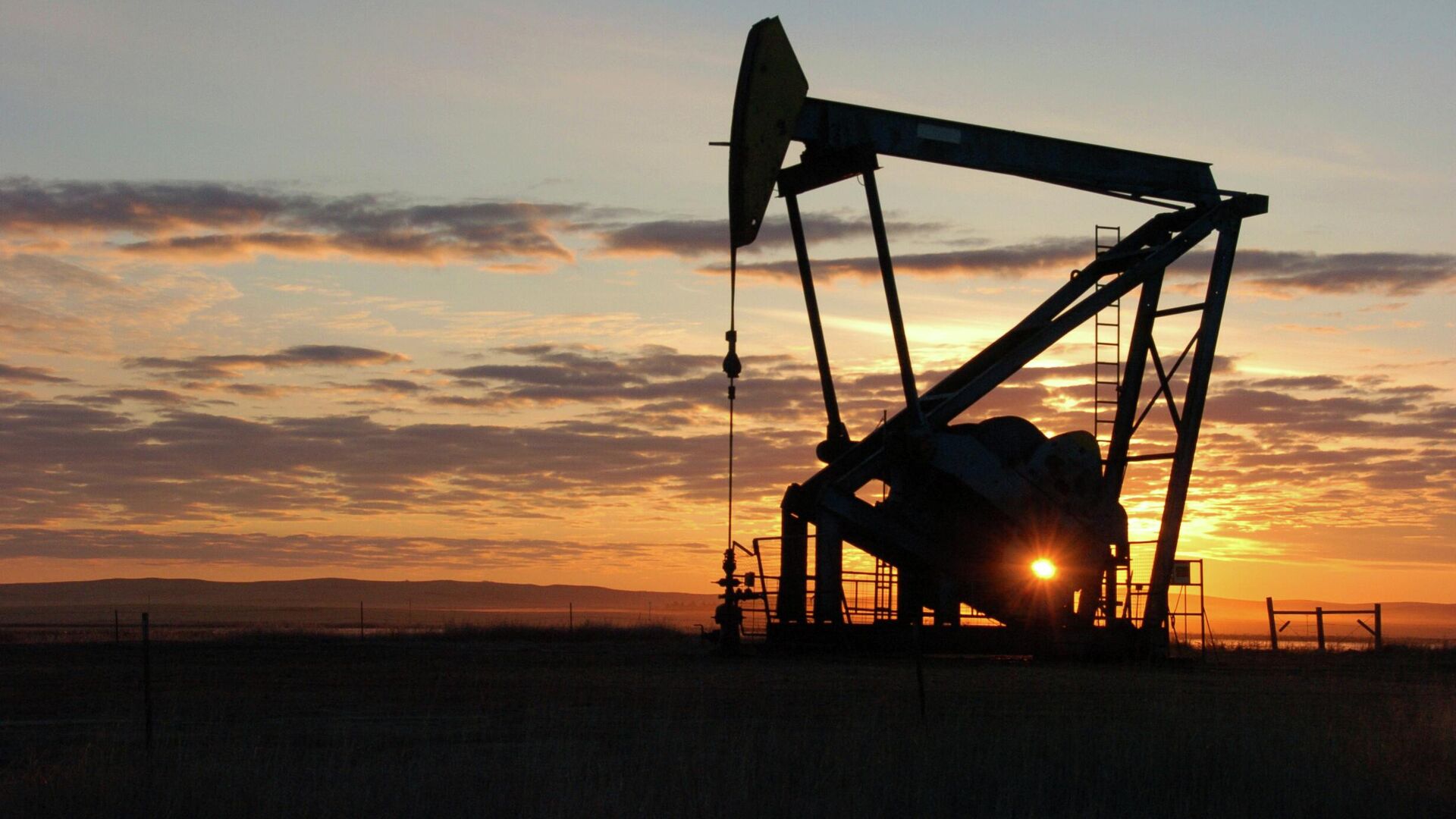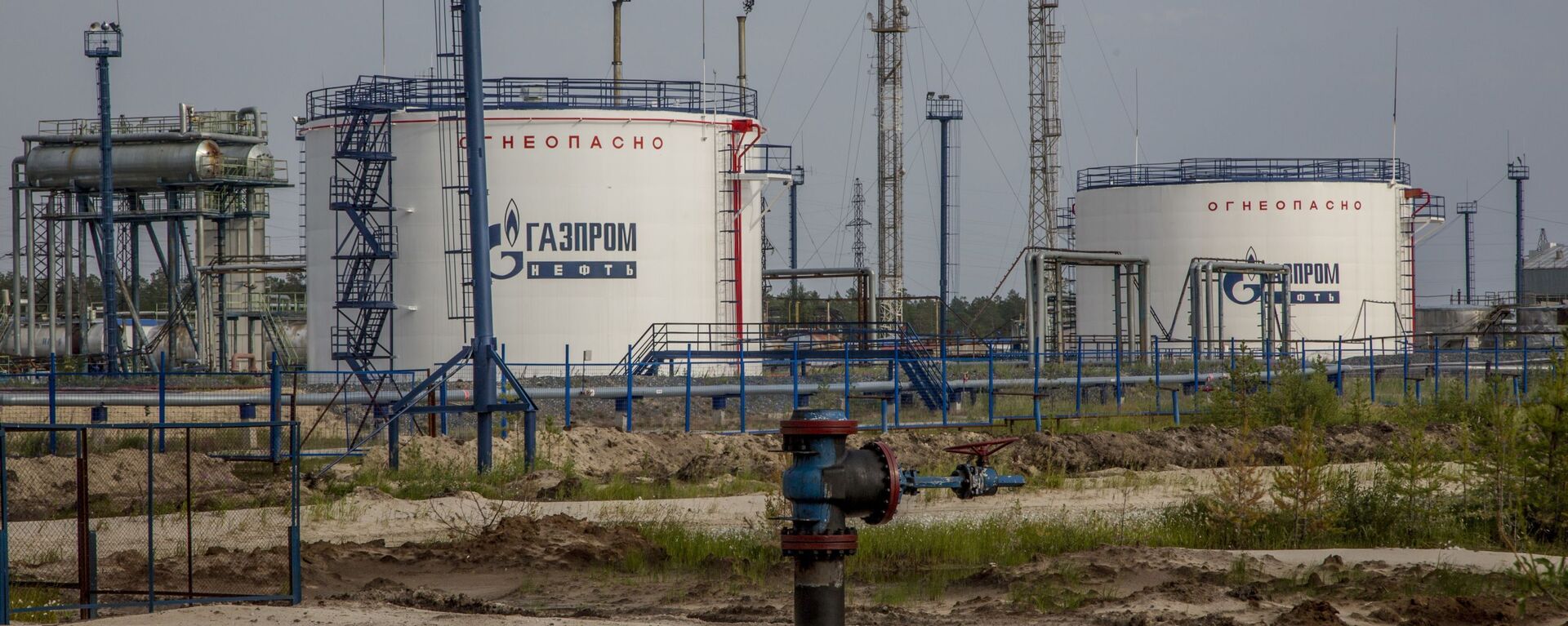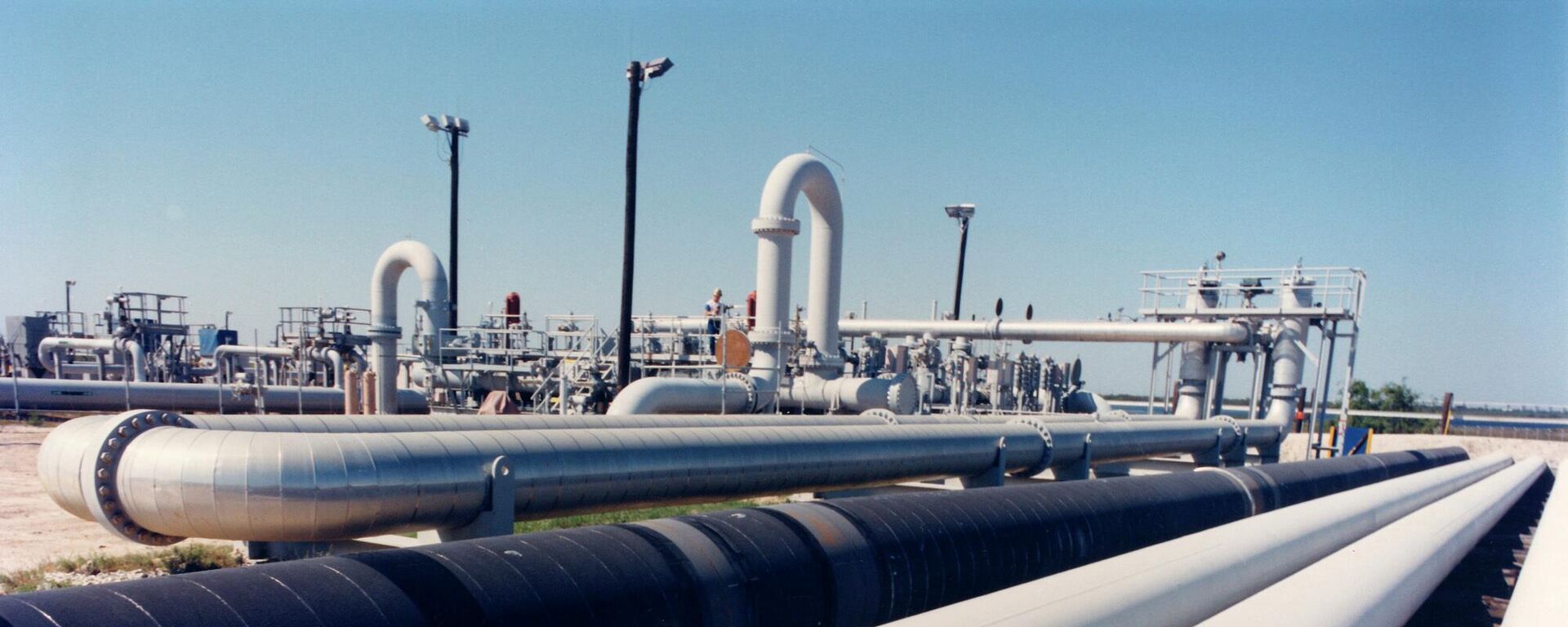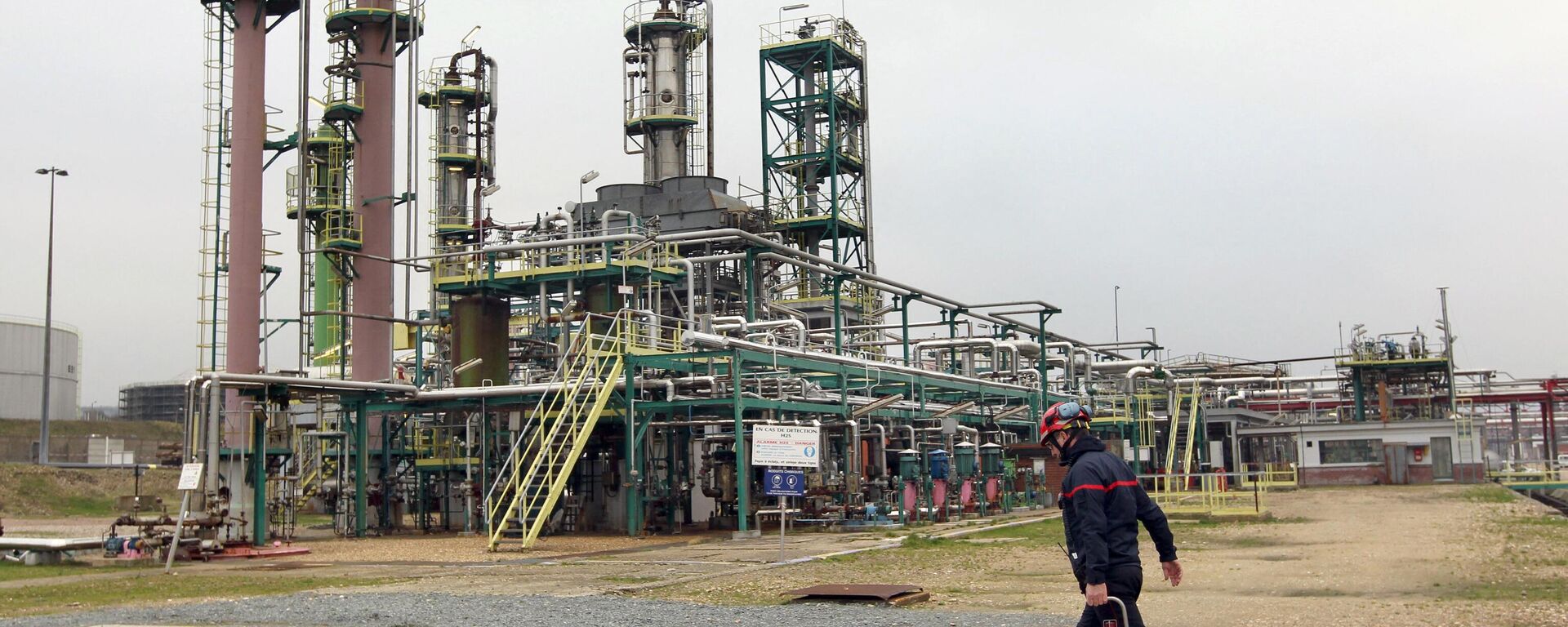Why Biden’s Draining of Strategic Petroleum Reserves is Grave Mistake
17:30 GMT 13.09.2022 (Updated: 14:20 GMT 15.11.2022)

© AP Photo / Matthew Brown
Subscribe
US emergency crude reserves fell 8.4 million barrels last week to 434.1 million barrels, their lowest levels since October 1984, according to the US Department of Energy (DOE). On February 25, 2022, the strategic petroleum reserves (SPR) held 580 million barrels of crude. What do waning crude reserves mean for the US economy?
"In the short term, a reduction of this scale isn’t critical for US energy security since the US government intends to replace the SPR releases albeit at higher oil prices," explained Dr Mamdouh G Salameh, an international oil economist and a global energy expert.
"Long term, this could be critical for the US energy security, particularly in view of the deteriorating situation between Russia and China on the one hand and the US and the European Union (EU) on the other hand regarding the Ukraine conflict and Taiwan respectively."
Another critical factor, according to Salameh, is the ever-shrinking global spare oil production capacity, including OPEC+, making it more difficult for the US to replace the crude it released from its SPR, which amounts to 240 million barrels (mb) so far.
The latest DOE's figures "underline the long term deterioration of US energy security and the failure of SPR releases to stem the rise in crude oil prices. It also underlines growing US imports of crude oil and the fact that US shale oil production is a spent force," the international oil economist added.
The US' SPR is stored at four major oil storage facilities in the Gulf Coast region of the United States, two sites in Texas (Bryan Mound and Big Hill), and two in Louisiana (West Hackberry and Bayou Choctaw). SPR releases of crude oil can occur under four conditions: emergency drawdowns, test sales, exchange agreements, and nonemergency sales, according to the US Energy Information Administration (EIA).
The SPR was created in December 1975 following the 1973 oil embargo imposed by the Organization of Petroleum Exporting Countries (OPEC) on Washington over the latter's support to Israel during the 1973 Arab-Israeli War. The embargo blocked the US from importing oil from participating OPEC nations, and initiated a series of production cuts that gave a boost to the world's crude prices. The price of oil nearly quadrupled from $2.90 a barrel before the embargo to $11.65 a barrel in January 1974.
As of last week, the SPR inventory was 434.1 million barrels. The highest inventory of emergency oil was registered in December 2010 when the storage was filled to 726.6 million barrels.
According to Salameh, the present US emergency reserves equate to 21 days of oil at 2019 daily US consumption levels of 20.54 million barrels a day (mbd), or 47 days of oil at 2019 daily import levels of 9.14 mbd.
"If the Biden administration is intent on spinning up a two-front war with both Russia (underway) and China in the future, this drawdown is very critical," argued Tom Luongo, a financial and political commentator. "The SPR is for this type of emergency, to have reserves necessary to respond to critical shortages under extreme circumstances (…) Its importance should be obvious, a country’s energy supply should not be managed on a ‘just-in-time’ inventory management principle. This is especially true if your country’s government decides it is necessary to be involved in regional conflicts which serve nebulous 'national interests'."
According to the political commentator, draining the SPR now is "absolutely the wrong strategic decision by the Biden administration."
Energy Prices Rally & SPR Releases
US energy prices started rallying months before Russia's special operation in Ukraine.
"With rising global oil demand and a shrinking global spare production capacity, crude oil prices have started surging hitting levels unseen since 2014," explained Salameh. "This led to a huge rise in gasoline prices in the United States. The Ukraine conflict accelerated the rise in prices."
The American Petroleum Institute's (API) president and CEO Mike Sommers told Fox News in November 2021 that Biden policies were a key factor in surging gasoline costs. According to the consumer price index (CPI), energy prices soared 4.8% in October 2021 being up 30% from the previous year. The API blamed the hike on Biden blocking petroleum sales in the Arctic National Wildlife Refuge (ANWR), cancelling the Keystone XL oil pipeline from Canada, and cutting leasing and permitting on federal lands. The aforementioned policies came as part of Biden's climate change initiative as his administration pledged to achieve a “net-zero economy” by 2050.
The US president repeatedly urged domestic petroleum producers and the Organization of the Petroleum Exporting Countries (OPEC) to bolster production to no avail. US producers cited the fact that beefing up oil extraction would take time, while the leading OPEC member, Saudi Arabia, stated on July 16 that the only thing Riyadh can do is boost crude production from 10 million barrels per day to 13 million per day by 2027, adding that there is no additional capacity.
"In order to arrest the rise in gasoline prices which could have a detrimental political impact on his political career, President Biden ordered the release of large volumes of crude from the SPR," Salameh noted.
In November 2021, the White House announced the release of 50 million barrels of oil from the strategic reserves "to lower prices for Americans and address the mismatch between demand exiting the [COVID] pandemic and supply."
In March 2022, Joe Biden authorized a further release of 1 million barrels of oil per day for the next six months. The announcement came after Washington slapped sweeping sanctions on most of Russia's economic sectors including energy, finances and logistics in the wake of Moscow's special military operation to demilitarize and de-Nazify Ukraine. According to the Washington Post, the biggest withdrawal in the reserve’s more than 46-year history was aimed at "starv[ing] Russia of revenue and cut[ting] the cost American consumers are paying at the pump.”
"Unfortunately they [the releases] hardly had any impact on prices," Salameh underscored.

9 September 2022, 22:49 GMT
Energy Embargo and Price Caps is Recipe for Disaster
"By imposing the harshest sanctions ever on Russia and trying to ban Russian crude oil exports and also propose a cap on Russian oil prices, both the United States and the EU are threatening global energy security," explained Salameh. "This comes at a time when the global oil market is at its most bullish state since 2014, global oil demand is very robust and global spare production capacity is shrinking as a result of underinvestment. The oil price trajectory is definitely pointing upward for at least the next five years."
The Washington Post reported on September 11, citing US officials, that if Russia keeps selling oil to world markets and only reduces gas exports to Europe, the effect on the US economy would most likely be minimal. However, a complete shut off of Russian oil could pose a threat to the US, according to the WaPo. Therefore, the Biden administration is advocating "price caps" on Russia's energy supplies in order to strip the nation of revenues while still keeping Russia's hydrocarbons on the market to safeguard the world economy from energy shocks.
"The US will be a big buyer of foreign oil over the coming months," claimed Luongo. "And it’s clear from Treasury Secretary Janet Yellen that the US intends to buy that oil back at below market prices. Given the supply and demand mismatch in global oil markets projected for the future, the idea of cheaper oil in real or nominal terms is a fantasy. Even if Yellen gets her 'price cap' in place it will only be because of a deep recession in the US where Americans will still struggle if gas gets back under $3/gallon."
Meanwhile, Russian crude oil exports of 8.0 mbd remain irreplaceable, underscored Salameh.
Earlier this year, the International Energy Agency (IEA) estimated that anti-Russia sanctions could take 2.85 million barrels of Russian crude per day off the world market. However, some economists suggested that the gap could be even wider. Under this scenario, Biden's SPR releases of 1 million barrels per day will struggle to fill the void. "The way oil economics work is you have a globally priced commodity. So, a disruption anywhere impacts prices everywhere," David Goldwyn, the head of Goldwyn Global Strategies, told Al Jazeera in April.
"Western sanctions and proposals to cap prices of Russian crude will fail miserably thus imposing an exceptionally heavy financial loss on Western economies particularly the United States and plunging them into a very harsh recession," Salameh concluded.






